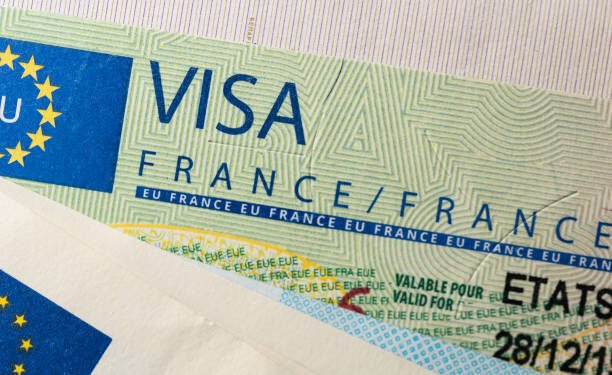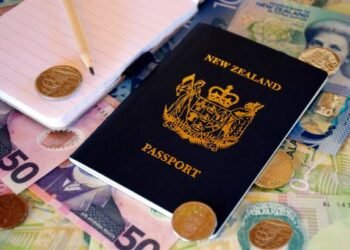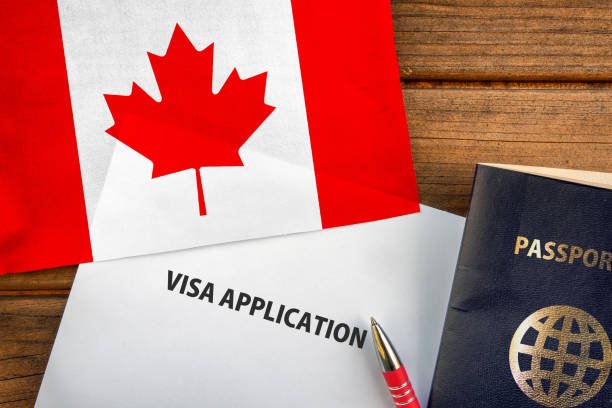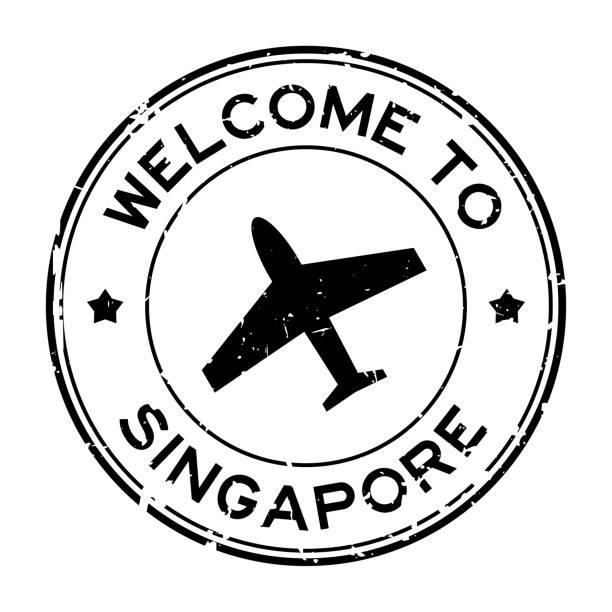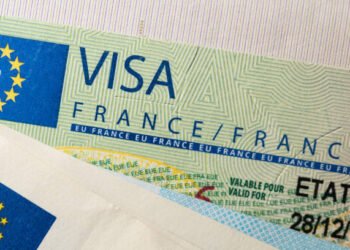Advertisement
Relocating to France has been considered one of the most rewarding moves for internationals seeking better opportunities, higher education, or cultural immersion. France remains one of the top destinations for immigrants worldwide due to its strong economy, historical heritage, thriving industries, and high quality of life. However, entry into France as an international traveler or migrant is regulated by its visa system, which ensures that applicants meet legal requirements and settlement conditions.
In this comprehensive guide, the different France visa types and categories will be examined, alongside the cost of settling in, the process of applying for visa sponsorship, and insider tips that can make the journey smoother. The information provided is designed to serve internationals who wish to travel for tourism, business, work, study, or long-term relocation in France.
Advertisement
France’s Immigration and Visa System
Importance of France’s Visa Policy
France, being part of the Schengen Area, follows the standardized visa policy of Schengen countries, meaning that a short-stay Schengen visa issued by France grants access not only to France but to 26 other Schengen states. For longer stays, France enforces national visas, which are specific to France and tailored to immigrants’ purposes of stay.
Key Governing Authorities
Visa processing in France is overseen by:
- The French Ministry of Interior
- Consulates and Embassies abroad
- The French Office of Immigration and Integration (OFII)
These bodies regulate entry, work permits, sponsorship, and settlement procedures for internationals.
France Travel Visa Types and Categories
Short-Stay Visa (Schengen Visa – Type C)
This visa is issued for a stay of up to 90 days within a 180-day period. It is primarily used for:
- Tourism
- Business trips
- Family visits
- Short-term study or internships
Applicants must demonstrate proof of accommodation, financial stability, and travel insurance.
Long-Stay Visa (Visa de Long Séjour – Type D)
This category is designed for stays exceeding 90 days and can lead to residence permits. Categories under this include:
- Student Visa: for international students attending universities or training programs in France.
- Work Visa: for foreigners with job offers from French employers.
- Family Reunification Visa: for family members of legal residents.
- Entrepreneur/Business Visa: for individuals establishing businesses or investing in France.
France Work Visas
Special work permits are included within long-stay visas, such as:
- Talent Passport: for highly skilled professionals, researchers, and innovators.
- Seasonal Worker Visa: for temporary agricultural or hospitality workers.
- Intra-Company Transfer Visa: for employees transferred from foreign branches to French offices.
Student Visa Categories
- Short-Term Student Visa: for programs under 3 months.
- Long-Term Study Visa: for academic programs lasting beyond 6 months.
- Student Residence Permit: issued after initial long-stay visa for continued stay.
Family and Dependent Visas
Family reunification rights allow spouses, partners, and children of residents or workers in France to relocate under specific conditions. Proof of relationship and accommodation is required.

Cost of Settling in France for Internationals
Visa Application Fees
- Short-Stay Schengen Visa: approximately €80
- Long-Stay Visa: around €99
- Work Visa categories: €99 – €200 depending on permit type
Accommodation Costs
- In Paris, monthly rent ranges between €900 – €1,500 for a one-bedroom apartment.
- In smaller cities like Lyon, Lille, or Toulouse, rent ranges from €500 – €800.
Food and Living Expenses
- Average monthly groceries: €250 – €350
- Restaurant meals: €12 – €25 per person
- Transportation pass: €75 – €85 in major cities
Insurance and Healthcare Costs
- International travelers must present valid health insurance covering at least €30,000.
- Once settled, internationals can enroll in French Social Security or obtain private insurance.
How to Apply for Visa Sponsorship in France
Understanding Visa Sponsorship
Visa sponsorship occurs when a French employer, institution, or family member supports the applicant’s relocation by guaranteeing financial stability, accommodation, or employment.
Step-by-Step Sponsorship Application Process
- Find a Sponsoring Employer/Institution
- Job offers must be secured before a work visa can be issued.
- Universities provide sponsorship for international students.
- Prepare Sponsorship Documents
- Proof of employment contract or admission letter
- Employer’s registration with the French Ministry of Labour
- Financial guarantee from the sponsor
- Submit Application Online or at Embassy
Applications are submitted via the France-Visas portal and followed up with biometric data collection at the embassy. - Wait for Approval and Attend OFII Appointment
Upon arrival, internationals must register with OFII to finalize residency.
Hidden Secrets Behind Moving to France
Choosing Cities with Lower Living Costs
While Paris is expensive, cities like Rennes, Montpellier, and Nantes offer affordable living and job opportunities.
Networking and Skill Development
Networking with French professionals before applying increases chances of securing sponsorship. Skills in demand, such as IT, healthcare, and engineering, fast-track visa approval.
Language Proficiency as a Key Advantage
French language skills improve employability, integration, and sponsorship chances.
Common Challenges and How to Overcome Them
Long Processing Times
Visa processing may take 2 – 3 months. Applications should be submitted well in advance.
Financial Proof Requirements
Applicants without sufficient funds face rejections. Sponsorship must include clear financial support documents.
Housing Barriers
Finding affordable housing in France is challenging. Early apartment search and official rental agreements should be secured before relocation.
Cost of Settling-in for Sponsored Workers
Salary Ranges in France
- Healthcare professionals: €2,500 – €4,000/month
- Engineers and IT experts: €3,000 – €5,500/month
- Hospitality staff: €1,800 – €2,500/month
Relocation Benefits
- Sponsored employees may receive free accommodation or relocation packages.
- Travel tickets are often reimbursed by employers.
Tips for a Successful Visa Application
Organize Documents Thoroughly
Disorganized documents cause delays and rejections. Proper sequencing should be ensured.
Highlight Sponsor’s Commitment
Stronger sponsorship evidence increases approval likelihood.
Prepare for Embassy Interview
Applicants should be well-prepared to answer questions about employment, finances, and accommodation.
Table: France Travel Visa Types, Student Visa, and Fast Approval Strategies
| Visa Type | Purpose | Key Requirements | Processing Time | Special Notes / Fast Approval Tips |
|---|---|---|---|---|
| Short-Stay Visa (Schengen Visa) | For tourism, family visits, business trips, cultural or sports events (up to 90 days). | Valid passport, proof of accommodation, travel insurance, financial proof, return ticket. | 15 – 45 days | Apply at least 2 months before travel, book consular appointments early, ensure complete documentation to avoid delays. |
| Long-Stay Visa (VLS-TS) | For stays exceeding 90 days (study, work, family reunion). | Valid passport, proof of long-term accommodation, financial proof, purpose-specific documents (employment contract, university admission). | 2 – 3 months | Submit biometrics early, attach notarized translations, and use France-Visas portal for faster pre-validation. |
| Student Visa (Long-Stay Study Visa) | For international students admitted to French universities/colleges. | Acceptance letter from French institution, proof of funds (approx. €7,380/year), health insurance, accommodation proof. | 2 – 3 months | Fast approval possible if applying through Campus France (streamlined student visa process). Provide strong financial guarantee (bank statement/sponsor letter). |
| Work Visa | For professionals hired by French employers with visa sponsorship. | Valid work contract, employer sponsorship approval, proof of qualifications, medical insurance. | 1 – 3 months | Speed approval by ensuring employer submits application through DIRECCTE (French labor authority) in advance. Demand is higher in shortage jobs (IT, healthcare, engineering). |
| Business Visa | For entrepreneurs, investors, and company staff attending meetings in France. | Proof of business activity, invitation letters, financial documents, valid passport. | 15 – 45 days | Submit complete corporate documentation early. Priority given if attending government-approved events. |
| Family Reunification Visa | For joining family legally residing in France. | Proof of relationship, residence permit of sponsor, accommodation and financial proof. | 3 – 6 months | Fast approval if all documents are notarized and translated, and if applying under EU citizen family reunification rights. |
| Talent Passport Visa | For highly skilled professionals, researchers, artists, and innovators. | Proof of expertise, work contract or project funding, financial resources, recognition of talent. | 2 – 3 months | Fast-track available under Talent Passport – EU Blue Card for highly qualified workers. Strong salary offer speeds up approval. |
| Asylum/Refugee Visa | For individuals seeking international protection in France. | Proof of threat/persecution in home country, asylum application with OFPRA. | Varies (months to years) | Priority processing for urgent humanitarian cases. |
Quick Summary of Fast Approval Tips:
- Apply at least 2–3 months early to avoid last-minute rejection.
- Use the France-Visas official portal for faster pre-application review.
- For student visas, applying through Campus France accelerates the process.
- Ensure all documents are complete, notarized, and translated into French.
- Employers should submit sponsorship early through DIRECCTE for work visas.
- High-demand professionals (IT, healthcare, engineering, teaching) get quicker approval under Talent Passport.

Frequently Asked Questions (FAQs)
1. Can I apply for French visas without a sponsor?
Yes, but sponsorship greatly increases approval chances for work and long-term visas.
2. How long does it take to get a France visa?
Short-stay visas may take 15 days, while long-stay visas can take up to 3 months.
3. Can my family move with me under sponsorship?
Yes, dependent visas allow family members to join international workers or students.
4. Is French language mandatory for visa approval?
Not always, but it is highly beneficial for work and integration.
5. How much money is required to settle in France?
At least €1,200 – €2,000 per month should be budgeted for living expenses in major cities.
France Visas that comes with Job Opportunities
1. France Work Visa (Salaried Employment Visa)
-
Granted to foreigners who already have a job offer from a French employer.
-
Employer must obtain approval from the French Labour Authority (DIRECCTE) before the visa application.
-
Covers sectors like IT, engineering, healthcare, hospitality, and teaching.
-
Typically issued for 1 year (renewable).
Opportunity: Direct employment with the sponsoring company.
2. France Talent Passport Visa
This is the most popular visa linked to work opportunities, especially for skilled immigrants. It has sub-categories:
-
EU Blue Card → For highly qualified professionals with a minimum salary threshold (€53,836/year in 2025).
-
Researchers & Scientists → For academics working in universities or research centers.
-
Artists & Creatives → For professionals in culture, arts, music, and entertainment.
-
Innovators & Startup Founders → For entrepreneurs who want to launch a business in France.
Opportunity: Direct path to high-paying jobs, entrepreneurship, and permanent residency.
3. France Seasonal Work Visa
-
For short-term workers in agriculture, hospitality, and tourism.
-
Valid for up to 6 months per year.
-
Requires a job contract from a French employer before application.
Opportunity: Good for unskilled/entry-level workers seeking seasonal roles.
4. France Student Visa (with Work Rights)
-
A long-stay study visa (VLS-TS) allows students to work part-time (up to 964 hours per year = ~20 hrs/week).
-
After graduation, students can apply for a Post-Study Work Visa or transition to the Talent Passport if they find qualifying employment.
Opportunity: Part-time jobs during study and full-time work after graduation.
5. Intra-Company Transfer Visa
-
For employees of multinational companies relocating to France.
-
Covers managers, executives, and specialized staff.
Opportunity: Work in France while staying within the same global company.

6. France Job Seeker / Business Creator Visa (APS – Autorisation Provisoire de Séjour)
-
Granted to international graduates from French universities.
-
Valid for 12 months, allowing job search or business creation.
-
Can be converted into a work visa once a job is secured.
Opportunity: Bridge visa for fresh graduates to find employment.
| Visa Type | Who Can Apply | Job Opportunities |
|---|---|---|
| Work Visa | Foreigners with a French employer’s contract | Full-time professional employment |
| Talent Passport (EU Blue Card, Researcher, Artist, Startup) | Highly skilled professionals, entrepreneurs, creatives | High-paying jobs, research, business |
| Seasonal Work Visa | Agricultural & hospitality workers | Short-term jobs (6 months/year) |
| Student Visa | International students | Part-time jobs & post-study work |
| Intra-Company Transfer Visa | Multinational company staff | Managerial & specialized roles |
| Job Seeker/Business Creator Visa (APS) | International graduates | Job search & entrepreneurship |
Conclusion
Relocating to France as an international requires a thorough understanding of visa types, sponsorship processes, and settlement costs. With careful preparation, proper documentation, and a strong sponsor, the chances of approval are significantly increased. By selecting affordable cities, enhancing skills, and learning the French language, internationals can not only secure visas but also enjoy a smooth integration into France’s rich culture and vibrant economy.

